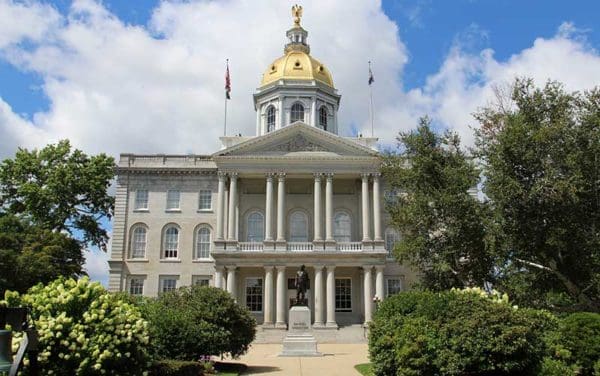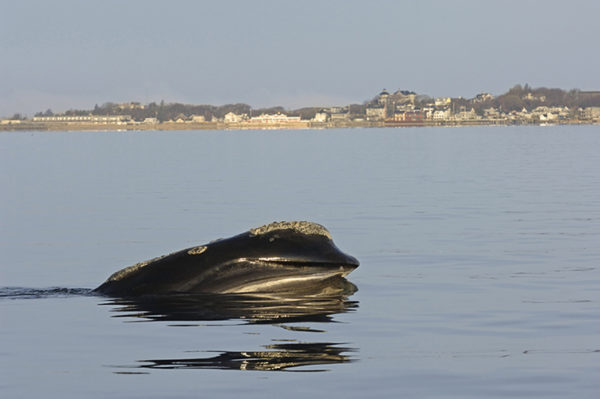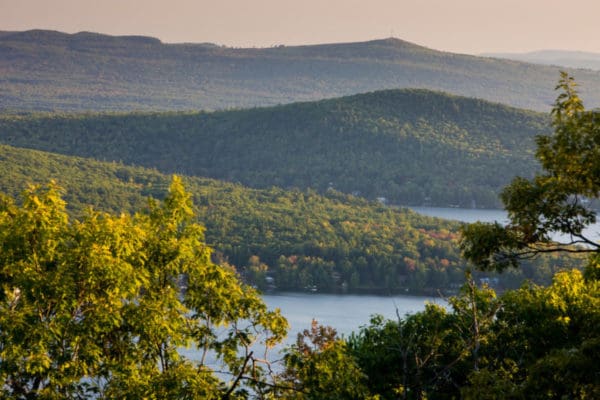How Do Solar Panels Work?
At the most basic level, solar panels take light from the sun and turn it into electricity that you can use to power your stuff, from the small (your phone) to the large (your home or your business).

At the most basic level, solar panels take light from the sun and turn it into electricity that you can use to power your stuff, from the small (your phone) to the large (your home or your business).

“For too long, we’ve put New Hampshire kids on the front lines of this serious public health problem – risking their health and their futures with the permanent effects of lead poisoning,” said Tom Irwin, Director of the New Hampshire office of Conservation Law Foundation. “Today’s vote is a victory for kids across the state. And because childhood lead poisoning often has a disproportionate impact on low-income communities and people of color, creating yet another barrier to breaking the cycle of poverty, today’s vote is a victory for some of New Hampshire’s most vulnerable children and families. We look forward to seeing the Governor sign this important bill into law.”

New England was recently blasted by an early winter storm. It was called a “bomb cyclone” and a “snow hurricane,” and for a while we all tried to huddle inside and stay warm. While temperatures have now risen back to a balmy 60 degrees, we know it won’t stay that way. So when the temperature… Continue reading How to Save Energy (and Money!) During a Cold Snap

CLF worked to block the proposed Kinder Morgan pipeline, which was a bad deal for our communities, our economy and our climate.

We’re in the home stretch of our work to strengthen New Hampshire’s lead laws to better protect kids from the preventable tragedy of childhood lead poisoning. But we need a final push to state Senators to see the bill through to the Governor’s desk.

[Update: On Jan. 4, 2018, the Trump administration announced a new five-year plan that would open up most U.S. continental shelf waters, including protected areas of the Arctic and the Atlantic, to oil and gas drilling. CLF joined 63 other groups in opposing this plan. Read the full joint statement here.] Over the past year, we’ve… Continue reading Not on Our Watch: Protecting New England’s Ocean from Offshore Drilling

“Childhood lead poisoning is a problem of statewide concern, affecting New Hampshire kids in rural and urban communities alike, and across all demographics, said Tom Irwin, director of the New Hampshire office of the Conservation Law Foundation. “But it’s a problem that disproportionately affects low-income families and some of our most vulnerable populations, and by impeding the ability of children to learn, it’s creating yet another barrier for families trying to break the cycle of poverty. Today, the House took an important step towards better protecting New Hampshire’s children and families.”

A country’s tax policy is about a lot more than expenses and revenues. It’s a value statement about who we are as a nation. And as both houses of Congress go through the process of reconciling their tax bills, the statement being made is disturbingly clear. This bill says we value dirty, outdated fossil fuels… Continue reading Congressional Tax Bill a Direct Attack on Environment and Economy

The Northern Pass transmission project proposes to bring electricity generated from Canadian dams to southern New England. But it will come at a tremendous cost to New Hampshire through the damage it would do to the environment and communities along its 192-mile path. Granite Staters have opposed the project since it was first rolled out… Continue reading Northern Pass Tries (and Fails) to Remain Relevant in Changing Energy Landscape

“The people of New Hampshire have been loud and clear that we do not want this project slicing through our state, yet the federal government has turned a deaf ear,” said CLF New Hampshire Director Tom Irwin. “Northern Pass is an empty promise when it comes to its claims of clean, ‘green’ power, and it only threatens to harm the communities and natural places it seeks to run through. From the beginning, the federal review process has had the feel of a rubber-stamp exercise in bureaucracy, failing to address key problems with the project. Regardless of the president’s approval, we will continue standing alongside the people of New Hampshire to fight this ill-conceived proposal.”
